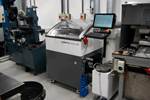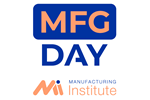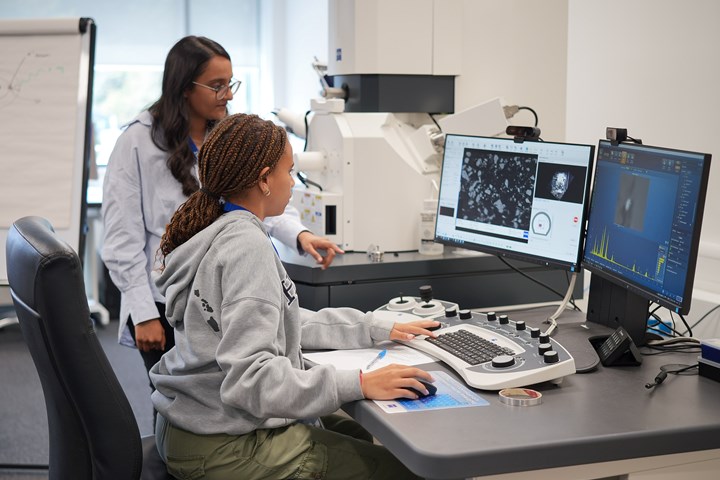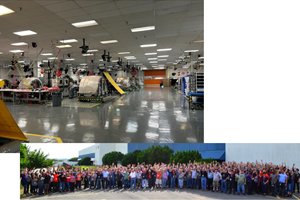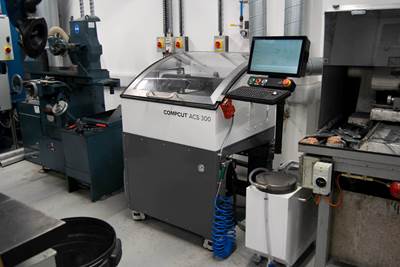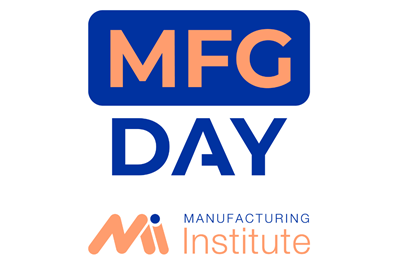Zeiss, Imperial College London summer school enhances materials, sustainability learning
Twenty-four next-generation students attended the Imperial College London this August to advance their scientific knowledge, with workshops, lectures, activities and a composites competition.
Saving the world, future sustainability and eco-friendly materials were hot topics discussed by a group of budding young scientists and top academics during a week-long summer school in August under the theme of “The science of sustainability under the microscope,” developed by metrology solutions provider Zeiss (Maple Grove, Minn., U.S. and Oberkochen, Germany) and the Imperial College London’s (U.K.) Department of Materials.
The program offered 24 students between 14-15 years of age an opportunity to develop valuable skills and gain new experiences, while increasing their knowledge of scientific subjects from leading academic experts. Alongside a number of lectures and practical lessons with topics such as materials characterization and microstructure and composites, students had the opportunity to take part in practical workshops to examine various materials under the microscope and work on questions such as: How can we improve current materials? Which properties do they have? And how can they be used in an eco-friendly way?
Students were also set a Composite Challenge, which was won by 15-year-old Amelia Yuan, from Sheffield, U.K., and her team. Aspiring to pursue a career as a scientist, Yuan analyzed materials through a Zeiss microscope and later developed the winning composite. “We put wooden sticks into paper straws, wrapped it around with carbon fiber and then sandwiched it in between layers of fiberglass,” Yuan says. “The combination of a strong material such as carbon fiber with natural components such as wood was our formula for success.” This clever combination withstood energy of 50 joules in the Charpy impact test, a standardized high-strain rate test that determines the amount of energy absorbed by a material during fracture.
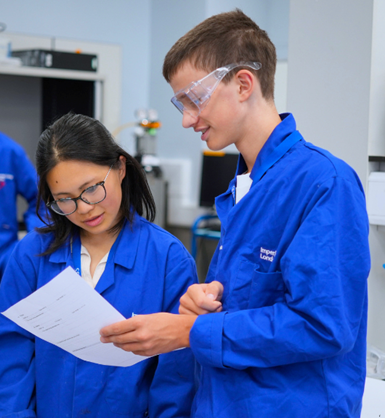
Amelia Yuan and Theo Werschnik.
Workshops, lectures and activities saw students learn how to build and operate microscopes, using artificial intelligence for imaging and analysis, how microscopy and materials science are tightly interlinked and how the in-depth characterization of materials can lead to a more sustainable future for all of us. “I applied for a place [in the program] because I want to expand on my science knowledge in order to help build a more sustainable future for generations to come,” 14-year-old Kennedy Greene from Toronto, Canada, says. “The opportunity to learn more about biomaterials and how to help the environment from top experts, as well as study at one of the best universities in the world was too great to miss.”
According to Dr. Eleonora D’Elia, senior teaching Fellow, Faculty of Engineering, Department of Materials at Imperial College London, the summer school program is “an excellent initiative to help nurture these young scientific minds and direct them towards a more sustainable mindset. We hope this experience has given them insight into the diverse array of STEM careers available and how fundamental they are for the future of all of us.”
“The aim of the Zeiss summer school was to give young people the opportunity to follow their passion for science while enjoying a unique experience at one of the world’s top academic institutes,” Katharina Enssle, head of employer branding at Zeiss, adds. “As a company we are passionate about inspiring the next generation of scientists and encouraging children from all backgrounds to follow their aspirations for a career in science.”
Related Content
Belzona opens fifth European SuperWrap Training Centre
Global training facilities provide intensive, first-class installer and supervisor training for proper use and application of Belzona composite pipe and tank repair systems.
Read MoreAMRC Training Centre introduces composites apprenticeship opportunity
With partners McLaren and Teledyne CML Composites, the Training Center will train new composites technicians in South Yorkshire to build up the future industry workforce.
Read MoreReducing accidental separator inclusion in prepreg layup
ST Engineering MRAS discusses the importance of addressing human factors to reduce separator inclusion in bonded structures.
Read MoreNew online training course targets prepreg basics
JEC World 2024: Composites Expert highlights how its E-Learning Composites Academy platform supports flexible industry learning with new courses developed with Stelia Aerospace North America.
Read MoreRead Next
Compcut ACS 300 machine provides safety, high performance for U.K. students
Installation of the composite cutting solution at the University of Nottingham has been instrumental in improving academic procedures for PhD students producing test-ready composite samples.
Read MoreGefran hosts Manufacturing Day for students to support education outreach
Undergraduate and graduate students are invited to tour Gefran’s North Andover, Mass., U.S. facility on Oct. 6 to learn more about career opportunities in manufacturing.
Read More“Structured air” TPS safeguards composite structures
Powered by an 85% air/15% pure polyimide aerogel, Blueshift’s novel material system protects structures during transient thermal events from -200°C to beyond 2400°C for rockets, battery boxes and more.
Read More

